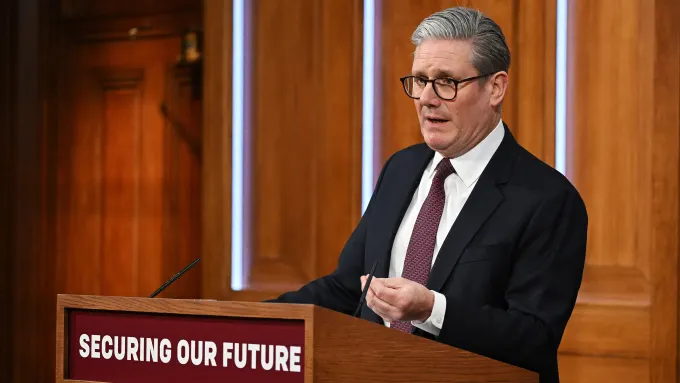
Putin’s response to Ukraine ceasefire not good enough, UK PM says, as Kyiv allies seek to pressure Russia
In a concerted effort to address the ongoing conflict in Ukraine, UK Prime Minister Keir Starmer has criticized Russian President Vladimir Putin’s ambiguous response to a proposed ceasefire, labeling it as “not good enough.” This statement comes amid intensified diplomatic initiatives by Ukraine’s allies to pressure Russia into meaningful negotiations and to establish a framework for lasting peace in the region.
The United States recently endorsed a 30-day unconditional ceasefire in Ukraine, a proposal that Ukrainian President Volodymyr Zelensky promptly accepted. However, President Putin’s reaction was equivocal; he acknowledged agreement with the proposal but simultaneously remarked that the deal “wasn’t complete,” introducing ambiguity into Russia’s position.
In response to Russia’s ambivalence, Prime Minister Starmer convened a virtual summit of the “coalition of the willing,” comprising approximately 25 countries, including European nations, the European Commission, NATO, Canada, Australia, New Zealand, and Ukraine. During this meeting, Starmer emphasized the necessity of maintaining collective pressure on Russia to engage in genuine peace negotiations, asserting that “the ‘yes but’ from Russia is not good enough” and that Putin must eventually come to the negotiating table.
Advancing the peace initiative, Starmer announced that military leaders from Ukraine’s allies are scheduled to convene in the United Kingdom to develop robust plans supporting a potential peace agreement and ensuring Ukraine’s future security. He stated, “We will now move into an operational phase,” underscoring the coalition’s commitment to transitioning from diplomatic discussions to actionable strategies.
The coalition reaffirmed its dedication to providing continuous military aid to Ukraine and intensifying economic sanctions on Russia. These measures aim to weaken Russia’s war capabilities and compel Putin to participate in substantive peace talks. Starmer highlighted that Ukraine “is the party of peace,” contrasting it with Russia’s reluctance to commit to the ceasefire without additional conditions.
